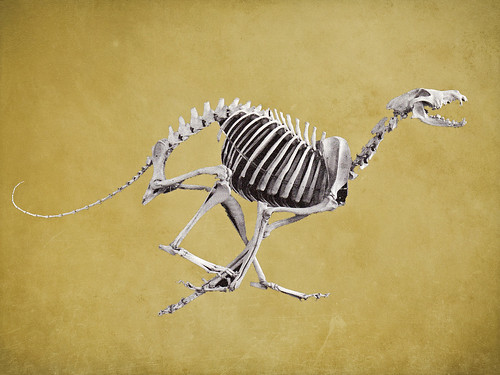2 November 2016. Two companies partnering with Auburn University developed a synthetic virus to find and destroy tumor cells in a type of bone cancer in dogs. Financial and intellectual property aspects of the agreement between synthetic gene company Gen9 in Cambridge, Massachusetts, design systems developer Autodesk Inc. in San Rafael, California, and Auburn University College of Veterinary Medicine in Alabama were not disclosed.
The research team created a synthetic version of canine adenovirus type 2, or CAV2, a virus usually associated with hepatitis in dogs. In this case, the synthetic CAV-2 virus is designed as an oncolytic virus that finds and attacks cancer cells, while leaving healthy cells and tissue intact. The genome in the organism is believed to be the longest in a functional virus synthesized for cancer research, with about 34,000 base pairs of nucleic acids. The human genome, by comparison, has about 3 billion base pairs.
The technology provided by Gen9 in this project makes it possible to eventually produce synthetic therapeutic viruses tailored for specific patients. Gen9 offers customized gene synthesis and is developing a library of synthesized proteins and antibodies. One of the 4 year-old company’s founders is George Church, a geneticist at Harvard Medical School and serial entrepreneur. In August 2016, as reported in Science & Enterprise, Church and colleagues, including those from Gen9, developed a synthetic E. coli bacteria genome with redundant DNA components removed.
Autodesk Inc. develops software for industrial and scientific design tasks, with the company’s BioNano Research Group contributing its expertise to the project. The research group offers an open-source Genetic Constructor online package that applies principles of computer-aided design for biological systems and synthetic DNA.
A research team led by Bruce Smith at Auburn’s veterinary medical college plans to test the synthetic Cav-2 virus in a clinical trial as a treatment for canine osteosarcoma, the most common type of bone cancer in dogs with a median survival time of 7 months to 1 year, depending on the type of treatment. Smith, Director of the Auburn University’s Research Initiative in Cancer, says in a Gen9 statement, “The technology to create a new virus by synthesizing it is a huge leap, but the ability to then make a customized virus tailored to the specific needs of each patient will be transformative.”
Read more:
- Synthetic Viruses in Gene Therapy Licensed for Production
- Synthetic Biotech Research Microbe Developed
- C. Difficile Infection Tested with Synthetic Gut Microbe
- Cell-Free Synthetic Biochemical Process Devised
- Synthetic Biology Company Raises $200 Million in IPO
* * *


 RSS - Posts
RSS - Posts